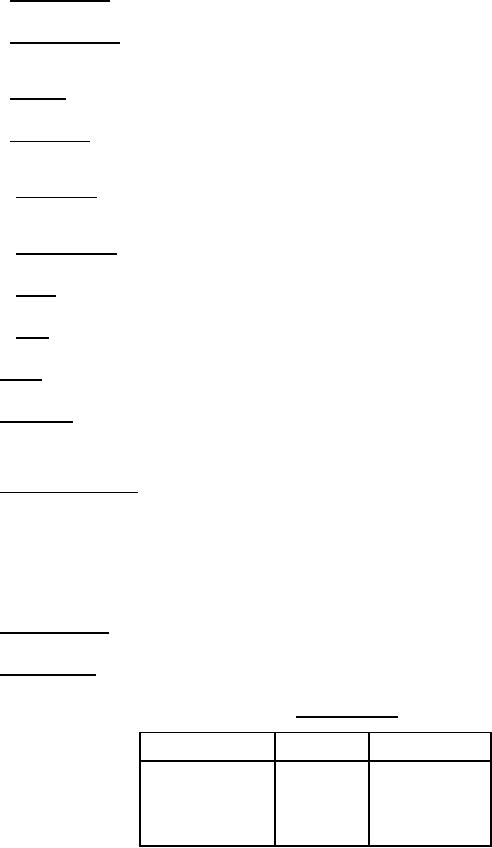
MIL-DTL-12606E
3.4.6 Harmonic distortion. When tested as specified in 4.7.7, the total harmonic distortion in the acoustic output of the loudspeaker
shall not exceed 5 percent:
3.4.7 Immersion resistance. When tested as specified in 4.7.8, there shall be no buzzing, rattling, or other spurious sounds in the
acoustic output of the loudspeaker; the frequency response and harmonic distortion shall be as specified in 3.4.5 and 3.4.6 respectively;
and there shall be no damage to the loudspeaker.
3.4.8 Endurance. When tested as specified in 4.7.9, the frequency response shall be as specified in 3.4.5, and there shall be no
damage to the loudspeaker.
3.4.9 Cold resistance. When tested as specified in 4.7.10, there shall be no buzzing, rattling, or other spurious sounds in the acoustic
output of the loudspeaker during the test. The frequency response and harmonic distortion shall be as specified in 3.4.5 and 3.4.6
respectively, following the test; and there shall be no damage to the loudspeaker.
3.4.10 Heat resistance. When tested as specified in 4.7.11, there shall be no buzzing, rattling, or other spurious sounds in the
acoustic output of the loudspeaker during the test. The frequency response and harmonic distortion shall be as specified in 3.4.5 and
3.4.6 respectively, following the test; and there shall be no damage to the loudspeaker.
3.4.11 Moisture resistance. When tested as specified in 4.7.12, the frequency response and harmonic distortion shall be as specified
in 3.4.5 and 3.4.6, respectively, and there shall be no loosening and deformation of parts or other damage to the loudspeaker.
3.4.12 Bounce. When tested as specified in 4.7.13, the frequency response and harmonic distortion shall be as specified in 3.4.5 and
3.4.6, respectively, and there shall be no loosening or deformation of parts or other damage to the loudspeaker.
3.4.13 Shock. When tested as specified in 4.7.14, the frequency response and harmonic distortion shall be as specified in 3.4.5 and
3.4.6, respectively, and there shall be no loosening or deformation of parts or other damage to the loudspeaker.
3.5 Marking. The loudspeaker shall be permanently and legibly marked in accordance with MIL-STD-1285 with the type number (see
1.1) and the manufacturer's name and symbol. Marking shall remain legible after all tests.
3.6 Workmanship. The loudspeaker shall be processed in such a manner as to be uniform in quality and shall be free from defects
that will affect life, serviceability, or appearance.
4. VERIFICATION
4.1 Classification of inspection. Test and measuring equipment and inspection facilities of sufficient accuracy, quality and quantity to
permit performance of the required inspection shall be established and maintained by the contractor. The establishment and
maintenance of a calibration system to control the accuracy of the measuring and test equipment shall be in accordance with
ISO 10012-1 and ANSI Z540-1. The inspection requirements specified herein are classified as follows:
a.
Materials inspection (see 4.3).
b.
Qualification inspection (see 4.5).
c.
Verification of qualification (see 4.5.5).
d.
Conformance inspection (see 4.6).
4.2 Inspection conditions. Unless otherwise specified, all inspections shall be performed in accordance with the test conditions
specified in the "General Requirements" of MIL-STD-1344 and MIL-STD-202.
4.3 Material inspection. Materials inspection shall consist of certification support by verifying data that the materials listed in
table I, used in fabricating the loudspeaker, are in accordance with the applicable referenced specifications or requirements prior to such
fabrication.
TABLE I. Materials inspection.
Material
Requirement
Applicable
paragraph
specification
QQ-A-591
3.2.1.1
Aluminum
QQ-C-576
3.2.1.2
Copper
QQ-S-571
3.2.2
Solder
NEMA-MWI000
3.2.3
Wire
FF-S-92
3.2.4
Screws
L-P-513
3.3.4
Plastic
9
For Parts Inquires call Parts Hangar, Inc (727) 493-0744
© Copyright 2015 Integrated Publishing, Inc.
A Service Disabled Veteran Owned Small Business